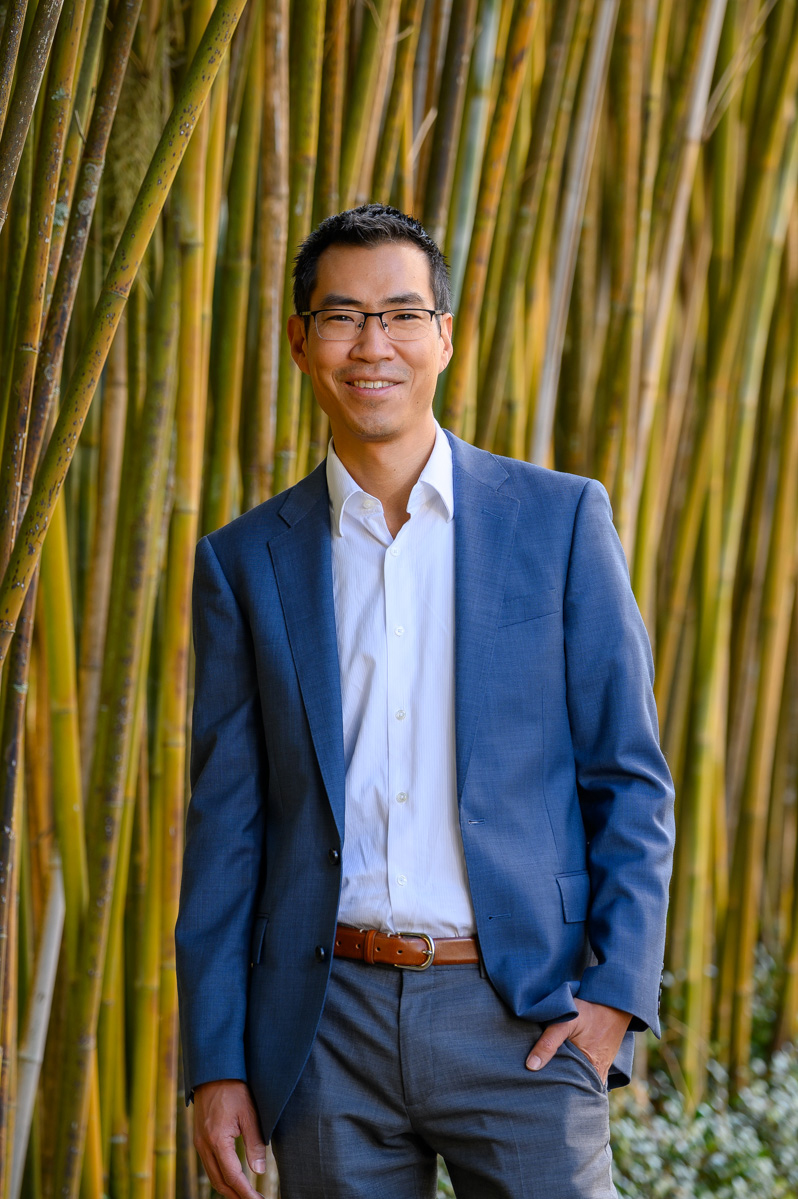About Akito Kawahara
Akito Kawahara is the Director of the McGuire Center for Lepidoptera and Biodiversity at the Florida Museum of Natural History, University of Florida. He is also a Curator at the Florida Museum of Natural History and a Professor at the University of Florida.
In 2023, he was named Director of the McGuire Center, a premier research education center with one of the largest collections of butterflies and moths in the world (over 10 million specimens). Kawahara spends much of his time with potential donors to support the research and education of butterflies and moths.
Kawahara’s Expertise
Kawahara’s professional expertise is to understand how the 160,000 species of butterflies and moths (Lepidoptera) on the planet have become the way they are. He works with the genetics and behavior of Lepidoptera. He also studies butterfly color patterns and predator-prey interactions, specifically how moths use ultrasound to defend against bat sonar.
In his lab research studies, Kawahara applies many approaches to understand fundamental questions about insect diversity, including why there are so many species of insects on Earth. He has collaborators look at how behaviors, such as flying during the day or at night, affect diversity, vision, and other aspects of insects, how thousands of insects with ultrasonic hearing organs evolve, and whether they all use this ability to escape predators like echolocating bats in the night. The lab uses phylogenetic, behavioral, functional genomic, and biodiversity informatics.
Kawahara and his collaborators also study how human impacts, such as habitat loss and anthropogenic light, affect some of the most common insects around us.
Recipient of Numerous Awards and Grants
Akito Kawahara received the John Henry Comstock Award from the Entomological Society of America, the Alexander B. Klots Award from the Lepidopterists’ Society of America, the Research Foundation Professorship Award from the University of Florida, and the ICE Young Investigator Award from the International Congress of Entomology.
Kawahara has received numerous awards for his research and has led 20 major grants totaling $13 million in research funds from the National Science Foundation and other national and international funding agencies.
He has authored over 200 peer-reviewed publications, including notable papers in journals such as Science and PNAS. Among his largest contributions are papers on the evolution of butterflies and moths, research on ultrasound production and hearing in moths, and echolocation in bats.
Appearances in Films, TV, & Radio
Kawahara’s expertise and work have garnered the attention of the media. He has appeared in numerous films, television, and radio shows, including PBS’s American Spring Live (2019), Nature’s Sex, Lies, and Butterflies (2018), David Attenborough’s Conquest of the Skies (2014), and Beetle Queen Conquers Tokyo (2009), and NPR’s Science Friday and All Things Considered (2023). He has written for The Washington Post and discussed his research on butterfly evolution in interviews with Smithsonian magazine.
In his TED Talk, “Why You Can Thank a Moth,” Kawahara discusses how, although moths are often thought of as pests, they actually do a lot. They pollinate, make silk for clothing, and are used to develop devices capable of rapid fire. Some moths are used to grow a fungus that acts like Viagra. He inspires curiosity and teaches the public about the value and beauty of the moths around us.
Kawahara also volunteers and gives presentations on butterflies and moths to elementary school and middle school kids.
Kawahara’s Professional Appointments
In addition to his current positions with the Florida Museum of Natural History, Kawahara is a Research Associate with the Smithsonian Institution of Natural History and a Joint Assistant/ Associate/Full Professor with the Department of Biology and the Entomology & Nematology Department at the University of Florida.
He did his post-doctoral fellowship in the Department of Plant and Environmental Protection Sciences at the University of Hawaii before becoming an Assistant Curator at the Florida Museum of Natural History in 2011 and eventually a full curator in 2021.
Kawahara also was an Arthur B. Gahan Fellow in the Department of Entomology, University of Maryland, an NSF-AToL (Lepidoptera) Graduate Research Assistant at the University of Maryland, a Graduate Research Assistant with Systematic Entomology Laboratory, USDA in Beltsville, Maryland, a Research Assistant with Project ALAS, La Selva Biological Station, in Costa Rica, a Howard Hughes Undergraduate Fellow with the Department of Entomology at Cornell University, and a CALS Undergraduate Research Fellow at Cornell.
Kawahara’s Bespoke Education
Akito Kawahara received his undergraduate degree in Entomology from Cornell University and his Master’s and Ph.D. from the University of Maryland, College Park. His doctoral dissertation was on the phylogenetics of leaf-mining moths, and his Master’s thesis was on the evolution of hawkmoths.
Kawahara’s Hobbies
He enjoys outdoor activities, including playing basketball, pickleball, and tennis. Kawahara also likes playing billiards and partaking in board games. He likes to draw and partake in activities with his two children. He also enjoys cooking for his kids.
Kawahara is bilingual and bicultural in Japanese and English, can communicate in Spanish, and can read and write in Chinese. He was born in New York City, and as a child, he traveled between New York and Tokyo annually, attending two schools simultaneously called “Taiheiyou-tsugaku” (Trans-Pacific Commute). He resides in Florida and New York, and his father is the modern contemporary artist On Kawara.
